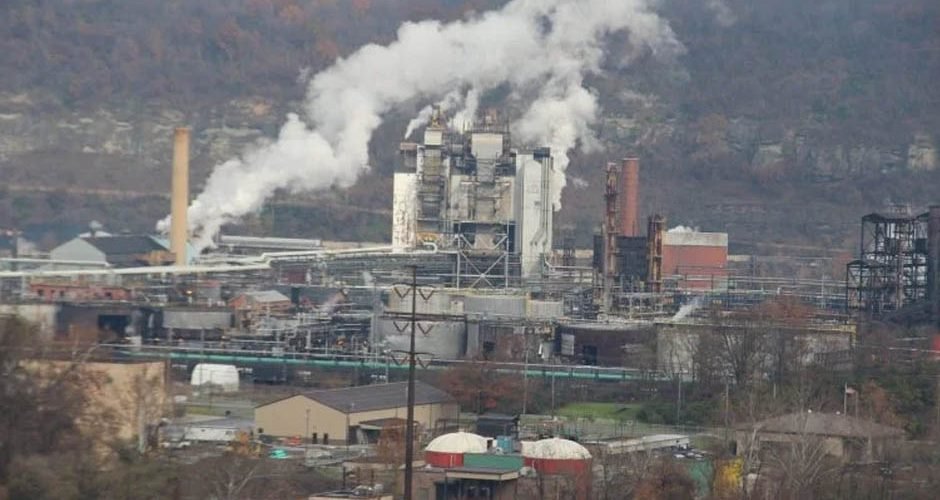The power of air pollution to impact the health and well-being of a population is no more evident than in New Delhi, the capital city of India, where high levels of air pollution are causing schools to remain shut, leading to widespread concern among parents. The city’s pollution levels are so severe, prompting the government to take drastic measures.
The Crisis in New Delhi
The city of New Delhi has long been plagued by high levels of air pollution, with the problem becoming so severe in recent years that it has now escalated into a full-scale crisis. The issue is driven by a combination of factors, including industrial emissions, vehicle exhaust fumes, and the burning of crop stubble by farmers in nearby regions.
As a result, air pollution levels in New Delhi have exploded, with readings that are frequently observed to be 20 times above the level deemed safe by the World Health Organization (WHO). Schools from Class 6 to 12 now have the flexibility to conduct online classes, as per government regulations. In response to a directive from the Commission for Air Quality Management (CAQM) in NCR and Adjoining Areas, the Delhi Transport Department has implemented restrictions on truck entry into the city. However, trucks carrying essential commodities and engaged in providing essential services are permitted to enter despite this ban.
In efforts to combat haze and air pollution, authorities have implemented anti-smog guns and water sprinklers. Many individuals have been wearing masks to protect themselves. The city government has also announced a hefty fine for those driving older diesel and gasoline vehicles that contribute to the smog problem. According to the Central Pollution Control Board, the air quality index has reached a dangerous level of over 400 for particulate matter. Lung specialist Rajneesh Kapoor suggests wearing masks and avoiding outdoor activities like jogging and brisk walking. He explains that the polluted air can exacerbate flu symptoms and trigger respiratory infections. It can even worsen blood pressure and diabetes problems.
Alarming Figures
New Delhi consistently ranks as one of the most polluted cities in India, particularly during the winter months. This is due to the burning of crop residues in nearby states, which coincides with colder temperatures that trap harmful smoke.
The burning of crop remnants at the beginning of the winter wheat-sowing season significantly contributes to pollution in northern India. Efforts have been made to discourage farmers from this practice by offering financial incentives to purchase machinery for the job. According to the Indian Institute of Tropical Meteorology in Pune, fumes from stubble burning accounts for 25% of the pollution in New Delhi.
Data from Respirer Living Sciences, an organization that monitors air quality and environmental factors, shows that New Delhi experienced a 32% increase in particulate matter in the air between 2019 and 2020. However, there was a 43.7% decrease in 2021 followed by a gradual increase in 2022 and 2023. Overall, the city’s air quality worsened from 109 micrograms per cubic meter to 113.9 in the past year, indicating a 4.4% increase.
Public Outcry
The Dieselgate scandal highlighted the health risks associated with diesel emissions, particularly nitrogen oxides (NOx) and fine particulate matter (PM2.5). These pollutants are harmful to human health, and exposure to them is linked to a range of health problems, including respiratory disease, cardiovascular disease, and cancer. The long-term effects of air pollution on children are particularly alarming. Exposure to toxic air can cause damage to their lungs and brain development, which can lead to lifelong health problems. Many affected individuals came forward with diesel emission claims, hoping to hold car manufacturers accountable for their deception.
While some countries, including California, have tightened their emission standards in recent years, others like India have been slow to do so. India’s current emission standard for diesel engines, Bharat Stage VI, came into effect in April 2020. However, the country still has a considerable number of older vehicles on its roads that do not adhere to the new standard.
Unfortunately, the problem is not limited to New Delhi. Several other cities in India, including Mumbai, Kolkata, and Bengaluru, are also grappling with high levels of air pollution. A report by the World Health Organization found that 14 of the world’s top 20 most polluted cities were in India.
The closure of schools is only a temporary measure, and it does not address the root cause of the problem. To solve the issue of air pollution in New Delhi, the government needs to take strong action to reduce emissions from industries and vehicles, enforce stricter regulations, and promote the use of cleaner forms of energy. The public also needs to be educated on the harmful effects of pollution and encouraged to take measures to reduce their carbon footprint. To get more information, head over to https://www.claimexperts.co.uk. Only by working together can we hope to achieve a better, healthier world for ourselves and our children.





